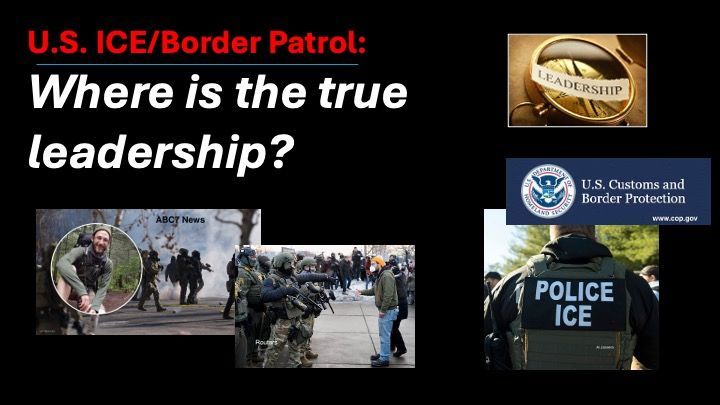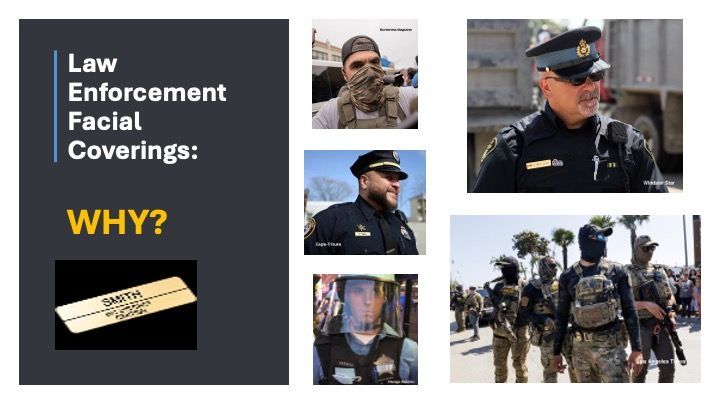New Paragraph

As a public safety analyst for Bell Media’s television and talk radio stations, I’ll always give my honest opinion on policing issues – including regarding OPP matters, when asked and if it’s within my police experience. Although I’d do anything to help my former police service, I will not insert myself into OPP matters in any way unless asked by the commissioner.
However, I continue to hear of troubling issues from former colleagues regarding critical OPP staffing challenges and feel an obligation to comment and express my concern.
I was the OPP commissioner, and deputy commissioner, etc. I know the drill. I’m confident that behind the scenes the current commissioner continues to quietly plead his case to the provincial government for more human resources, but he cannot go public with that pitch or there’ll be another staff vacancy in the OPP – his.
My comments are NOT a critique of Commissioner Carrique and his team. I’m sure the OPP would be at full strength if it was his call. And I totally appreciate the numerous competing financial priorities faced by the Ford government. None of this is easy. But something is going to break if not soon fixed and the people of Ontario and the men and women of the OPP will bear the brunt of the impact.
The OPP deliver frontline policing to a large chunk of Ontario’s municipalities. They also provide support in a variety of ways to municipal and First Nations police services on request – from the smallest to the largest. No one service can do it all and they all help each other, but as the largest and the one with the biggest footprint, much of that provision of support does fall to the OPP. That includes 24/7 uniform backup, forensics, detectives, emergency response, public order, specialty investigations and more. They are funded in part to do that by the taxpayers of Ontario; they do it with pride and do not seek reimbursement.
At the same time, they conduct traffic and marine patrols, enforcement and investigations, and search and rescue operations in OPP jurisdiction, to over a million square kilometers of geography. ALL of that is an expensive business, requiring vehicles, vessels, aircraft, fuel, equipment, buildings/infrastructure, uniforms, supplies and the most expensive resource, “people.”
Over the past several years, the OPP has been forced to leave hundreds of employee vacancies to meet government financial challenges. Although the OPP commissioner oversees the preparation of the OPP budget within general set guidelines, it is adjusted (most often trimmed) and submitted through the solicitor general and staff to the appropriate Ministry of Finance officials for consultation, adjustment and eventual approval by government.
The commissioner must be reasonable of course in terms of his budget request, and staffing numbers must be in keeping with municipal policing contract obligations; demonstrated workload; proposed new business lines (units); as well as anticipated supplies/services/technology numbers.
When government says cuts are required, the only area where that is generally feasible in any appreciable amount, is in salary dollars. That requires some staff vacancies not be filled, and the vast majority are police officer positions. Determining where those positions can be left open becomes the challenge. Some detachments, units and bureaus will feel the pain. The bigger the cut, the bigger impact it will have. Every commissioner under governments of all political stripes since 1909 has been faced with this process, however some financial times have been more fiscally demanding than others.
So how does this impact public safety?
In many cases, OPP policed municipalities and unincorporated areas will have less police officers to patrol and respond to calls for service. OPP officers will have less available back-up and relief to attend courses or vacation. Crimes and collisions will have less officers available to respond and investigate. Other police services won’t be able to count on the OPP for assistance with the same frequency, and in more remote areas of Ontario there is only the OPP available to assist.
Accordingly, I regularly hear from detachment officers all over Ontario that “nobody is working.”
Between ongoing vacancies, officers who can’t go on patrol because of various health issues being accommodated, officers calling in sick or off-duty on long-term medical leave, etc. they say, there are not enough people to handle the workload.
In one large OPP detachment, I was told that they often had less than four officers on duty during the past summer on days when they would once have had a minimum of a dozen working. That lead to calling in personnel on overtime, burnout for all, increased levels of stress and little ability to take time off.
Full-time OPP units like tactical or investigative teams will have fewer potential recruits to draw from within the OPP. How will they meet the increasing need to fight organized crime? Help other agencies? Stem the flow of handguns into Canada and get more illegal firearms off our streets? The math doesn’t work.
Think back to the various Freedom Convoy protests last February and how Ottawa Police needed outside police assistance. It took weeks for the OPP and RCMP to get sufficient resources in to assist. Not because they didn’t want to help. Not because there were insufficient laws. It was because both organizations are vastly understaffed and could not free up sufficient members and ship them long distances to help in a timely way.
The totality of this scenario is untenable. Adequate and effective policing cannot be sustained in OPP jurisdiction; other police services – including Indigenous police services and their communities – will continue to be negatively impacted and it is not in the best interests of OPP employee well-being and in particular their emotional health to let it continue. In addition, this situation will undoubtedly impact OPP morale and could lead to professionalism and productivity challenges.
Anything less than committed, professional and dedicated police officers undoubtedly hurt public trust, and police services cannot survive without community and recruit pool trust.
The premier has recently stated that improving police funding is a priority for his government, which is wonderful. I’m sure many of Ontario’s police services can use a boost, particularly the OPP. It’s sad that it’s only being spoken of with an election on the horizon, but better late than never. Let’s get it done now and never let it get this bad again.
Chris Lewis served as Commissioner of the Ontario Provincial Police from 2010 until he retired in 2014. He can be seen regularly on CTV and CP24 giving his opinion as a public safety analyst.




